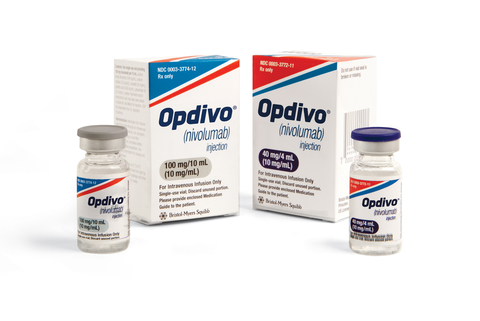Promising Melanoma Drug Receives Further FDA Approval
 Melanoma is the scourge of skin diseases and by far the deadliest type of skin cancer. Although melanoma is rare overall – it accounts for fewer than one percent of all skin cancer cases – this disease is responsible for the great majority of skin cancer deaths. According to the Skin Cancer Foundation, about 90,000 Americans were diagnosed with melanoma in 2017, and around 10,000 died from the disease.
Melanoma is the scourge of skin diseases and by far the deadliest type of skin cancer. Although melanoma is rare overall – it accounts for fewer than one percent of all skin cancer cases – this disease is responsible for the great majority of skin cancer deaths. According to the Skin Cancer Foundation, about 90,000 Americans were diagnosed with melanoma in 2017, and around 10,000 died from the disease.
These numbers clearly show the deadly impact of melanoma. Fortunately, there is some good news. Like almost every other form of cancer, melanoma survival rates increase when the disease is discovered in its early stages. In other words, the sooner you catch melanoma, the greater your odds of beating the cancer.
However, survival rates dip dramatically once melanoma begins to spread. Once the cancer spreads to the lymph nodes, the survival rate decreases to 62 percent and falls much further, to 12 percent, if the cancer travels to distant organs. Given this sharp decline in survivability, it is apparent why effective melanoma treatments are so crucial, especially in the later stages of the disease.
Nivolumab
One such treatment is the drug nivolumab. Also known by its brand name, Opdivo®, nivolumab belongs to a group of drugs called anti-PD-1 monoclonal antibodies. These drugs function by allowing immune system agents, specifically T-cells, to attack melanoma cells. Thus, the body’s own immune system can fight the invading cancer.
Nivolumab is not an incredibly new drug. The Food and Drug Administration (FDA) first approved this chemotherapy agent in December of 2014 for use in melanoma cases where the cancer was metastatic – or spreading – or when melanoma could not be removed surgically. Oncologists typically prescribe nivolumab in combination with another chemotherapy drug, ipilimumab, which goes by the trade name Yervoy ®.
What is news is that the FDA just recently expanded its approval of nivolumab to include the drug’s use in patients whose melanoma has spread to lymph nodes but not yet metastasized to other organs. Additionally, the FDA also gave the go-ahead for doctors to use nivolumab to treat patients who have already had their melanoma successfully resected or surgically removed. This type of treatment is intended to prevent the cancer from recurring and is referred to as adjuvant therapy.
So now, physicians can employ nivolumab in melanoma patients who are unable to have surgery for their disease, whose cancer has spread to their lymph nodes or distant organs, and who have already undergone successful surgery for their cancer but need a way to prevent the disease from returning.
Clinical Evidence
Naturally, the FDA required evidence from clinical trials before expanding its approval of nivolumab. This requirement means that researchers had to demonstrate the effectiveness and relative safety of nivolumab in real melanoma patients. There were a total of 906 patients who participated in the trial, and all of them had advanced stage melanoma that had spread to their lymph nodes and/or distant organs. Also, all of the patients had undergone complete surgical removal of their primary melanoma.
Researchers randomly assigned patients in the trial to receive either nivolumab or ipilimumab. On average, the patients who received nivolumab were treated with the drug for around 11 months. At the conclusion of the study, the researchers determined the percentage of patients who suffered a recurrence of their melanoma or death from any cause. This percentage was 45.5 percent in the ipilimumab patients but was significantly lower at 34 percent in the nivolumab patients. These percentages indicate the effectiveness of nivolumab at preventing recurrence in advanced melanoma cases.
However, it should be noted that, like all chemotherapy drugs, nivolumab can cause side effects. In fact, nine percent of the patients receiving nivolumab in the trial had their treatment discontinued due to adverse drug reactions. Nivolumab may cause rashes, diarrhea, colitis and can increase the risk of lung, liver, and kidney inflammation as well as thyroid problems.
The Important of Melanoma Screening
Despite these advances in chemotherapy treatment for melanoma, the best strategy for surviving the disease remains to catch melanoma in its early stages. The vast majority of melanoma cases are caused by UV light exposure, and there is pretty much no way to avoid the sun completely. While limiting sun exposure, covering your skin, and using sunscreen can certainly help, you should not neglect regular skin cancer screenings with your dermatologist.
If you notice a new mole or mark on your skin, report it to your dermatologist immediately, especially if the mole is irregularly shaped, growing in size, or is an odd color. With attention and diligence, it is usually possible to detect melanoma before it begins to spread.
